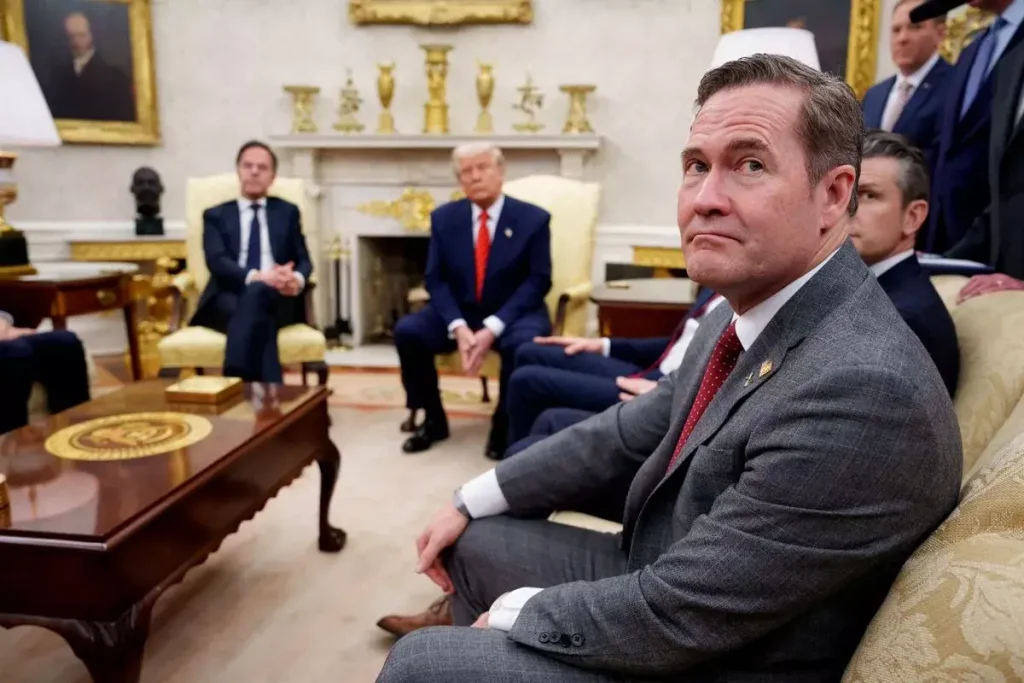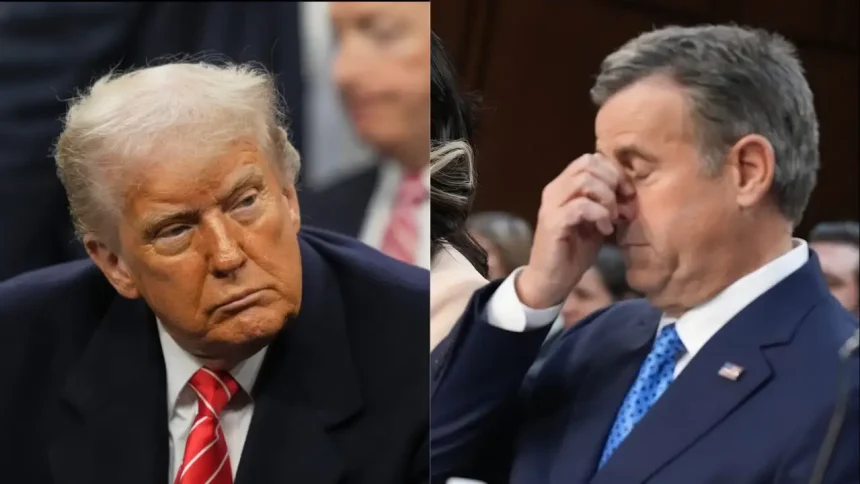The private contact details of top U.S. security officials, including National Security Adviser Mike Waltz, Defense Secretary Pete Hegseth, and Director of National Intelligence Tulsi Gabbard, have been exposed online.
This alarming breach, first reported by German news magazine Der Spiegel, has ignited serious concerns about national security and the vulnerabilities within U.S. government cybersecurity systems.
Cybercriminals and commercial data-search services played a key role in this massive leak. Hackers reportedly compiled personal information, including mobile phone numbers, email addresses, and even some passwords, making them easily accessible online.
Investigations reveal that some of these details were linked to social media platforms like LinkedIn and Instagram, as well as cloud storage services such as Dropbox.
Cybersecurity experts warn that once such data is exposed, it opens doors for potential spyware attacks, allowing foreign intelligence agencies to monitor critical government discussions.
This data breach comes on the heels of an embarrassing mishap involving a private Signal group chat where Trump administration officials, including Vice President JD Vance and Secretary of State Marco Rubio, allegedly discussed military airstrikes on Yemen.

The scandal erupted when The Atlantic reported that journalist Jeffrey Goldberg was mistakenly added to this confidential chat.
The revelation triggered widespread outrage, with bipartisan calls for resignations and tighter communication security protocols.
Former President Donald Trump swiftly defended Pete Hegseth, calling the uproar a “witch-hunt” and insisting that no classified information was compromised.
Hackers continuously harvest stolen data and sell it on dark web marketplaces. According to Der Spiegel, some of the leaked email addresses and passwords had already surfaced in over 20 previous breaches.
In a troubling development, reports indicate that Hegseth’s phone number was effortlessly retrieved through a commercial contact search provider.
This raises serious questions about how vulnerable top U.S. officials are to cyberattacks and how easily adversaries could exploit these security gaps.
The risk goes beyond simple data exposure. Security analysts fear that if these leaked phone numbers were tied to active Signal and WhatsApp accounts, hostile intelligence agencies might have been eavesdropping on discussions between top U.S. officials.
If secret military strategies were indeed compromised, the potential consequences for national security could be severe. This possibility has fueled urgent demands for improved cybersecurity measures within the federal government.
The White House has confirmed that an internal review of security protocols is underway. However, the damage has already been done.
Cybersecurity experts emphasize that government officials must adopt stricter security measures, including two-factor authentication, encrypted communications, and limiting exposure to data brokers.
The big question remains: Can the U.S. government truly protect its sensitive information from an evolving digital threat landscape?
This incident underscores the ever-present dangers of cyber vulnerabilities in government communications. As the investigation unfolds, officials must recognize the urgency of reinforcing digital security.
With hackers constantly finding new ways to infiltrate networks, safeguarding national security must be a top priority—before another major breach occurs.
